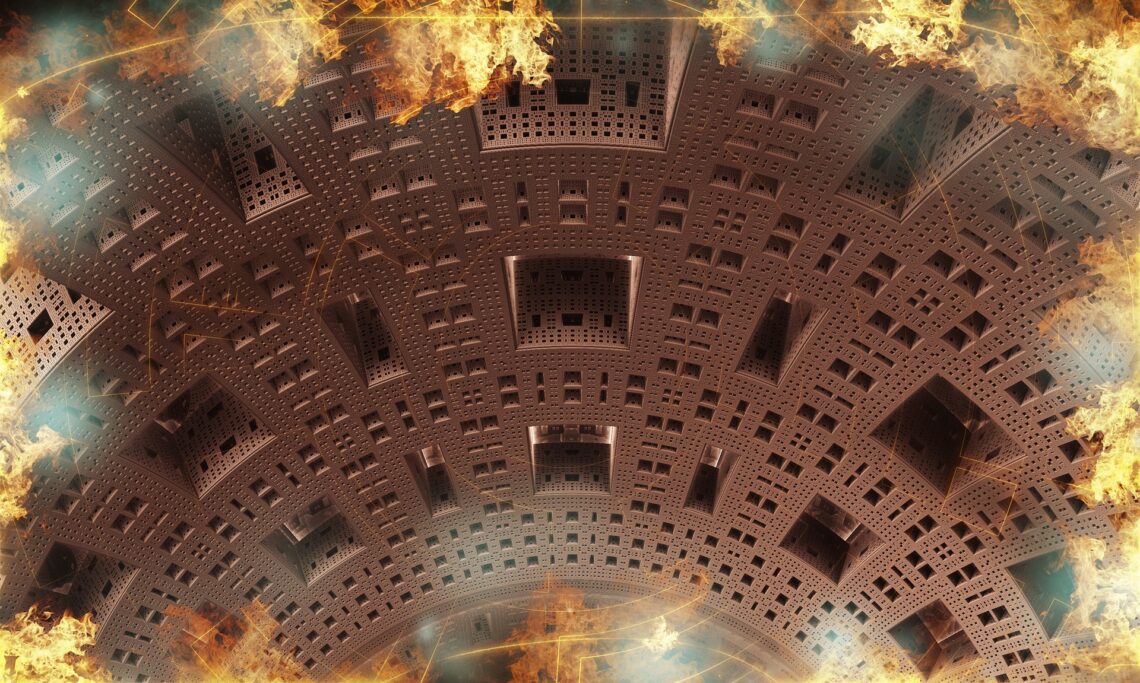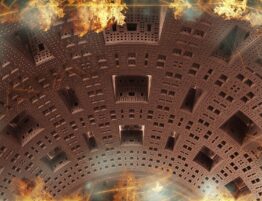
The Rise and Fall of Babylon (Part 1)
The Rise and Fall of Babylon
So I asked the angel who was speaking with me, “Where are they taking the basket?” “To build a shrine for it in the land of Shinar,” he told me. “When that is ready, the basket will be placed there on its pedestal.” (Zechariah 5:10–11)
The Importance of Babylon
With the exception of Jerusalem, Babylon is the second-most mentioned city in the Bible (280 times). Arguably it is the most important pagan city that ever existed, whose influence spread all over the world during the next two and a half millennia.
It is there where Satan began his centuries-old battle against God with the purpose of conquering the souls of men. It was there that the seeds were planted for all the major religions of the world. Government had its earliest beginnings there, eventually producing Nebuchadnezzar.
Since the demise of Rome, there has been no other world government, just as Daniel foretold (Daniel 2, 7), for God revealed that there would be only four world governments.
When Jesus Christ comes to establish His kingdom, He will destroy Babylon, along with her religion, commerce, and government. Then He will rule the world forever (Revelation 17–18).
Babylon Past
Babylon first appears in scripture in Genesis 10–11. It was the first city built after the Flood. It was founded and ruled by Nimrod, the world’s first dictator. It was the location of the Tower of Babel. From its founding, Babylon was both a literal city and the wicked false religious system that emanated from it. It is pictured as man’s city.
Most of scripture’s references to Babylon concern the Babylonian Empire that ruled the world from 605–539 BC. King Nebuchadnezzar was the leader of this empire. Judah was invaded by Nebuchadnezzar three times. The prophets had warned Judah that unless they repented, God was going to use Babylon as an instrument of His discipline. After Babylon destroyed the temple, the message of the prophets turned from one of judgment on Judah to one of hope for the future. Part of this message of hope was that God would repay Babylon for her sin.
Stage Setting
We have already learned that a peace agreement was put together between Israel and her neighbors, an agreement shattered by a surprise attack against Israel launched by Russia, Iran, and Turkey, and their North Africa allies—an attack that is fended off. Ezekiel 39 tells us that the invading armies and many of their lands are destroyed by a divinely orchestrated counterstrike.
I will send fire against Magog and those who live securely on the coasts and islands. Then they will know that I am the Lord. (Ezekiel 39:6)
From a military standpoint, Europe emerges unscathed from the divinely orchestrated counterstrike. However, Europe will be greatly impacted economically due to the trade disruption because of the defeat and destruction suffered by the attacking coalition of countries. Today, the European Union is heavily dependent on oil and natural gas coming from Russia and has sought to tap into Iran’s vast natural gas reserves by piping the gas through Turkey.
This will force Europe and other countries to secure alternative sources of energy, resulting in the quick rise of oil prices by oil-producing countries that are not impacted by the battle of Gog and Magog. Those oil-producing nations will benefit from a significant transfer of wealth and by no longer having Iran and Turkey, the two dominant non-Arab powers in the Middle East, posing a threat.
The fear of future conflicts along with the significant increase in oil revenue, however, may be what finally convinces the Arab nations in the Middle East to form an alliance necessary for their survival, especially with so much of the world in desperate need of their oil and gas.
But where will this alliance be centralized? What city might be more politically acceptable to these Arab states?
Everything Old Is New Again
Historically, Babylon was both a city and an imperial capital. Babylon was identified in the book of Daniel as the first in a series of four world powers that would control Israel and God’s people. Long before Nebuchadnezzar sat on his throne, King Hezekiah was told by Isaiah that Judah would be taken into captivity in Babylon:
“Look, the days are coming when everything in your palace and all that your predecessors have stored up until today will be carried off to Babylon; nothing will be left,” says the Lord. (Isaiah 39:6)
The rise of Babylon was predicted by God so that Israel would know that He was in control of history even when Babylon attacked and destroyed Jerusalem. Babylon’s destruction was also predicted by God in Isaiah 13–14. At the time of God’s announcement, Babylon was an insignificant power, a nation controlled by the Assyrian Empire. Yet in Isaiah’s list of nations that God vowed to judge, Babylon was public enemy number one. Isaiah spent more time describing the fall of Babylon than any other nation, and the details of that judgment are significant.
Babylon would be judged in “the day of the Lord” (Isa. 13:6, 9). This day would be unique because:
- It involved supernatural signs in the heavens: “Indeed, the stars of the sky and its constellations will not give their light. The sun will be dark when it rises, and the moon will not shine” (13:10).
- It would bring divine judgment on the earth: “I will punish the world for its evil, and wicked people for their iniquities. I will put an end to the pride of the arrogant and humiliate the insolence of tyrants” (13:11).
Isaiah also announced it would be a time when God would restore Israel to their land to “rule over their oppressors” (14:2). Babylon, meanwhile, “will be like Sodom and Gomorrah when God overthrew them” (13:19), never to be inhabited again “or lived in from generation to generation” (13:20).
To this day, this prophecy has remained unfulfilled.



